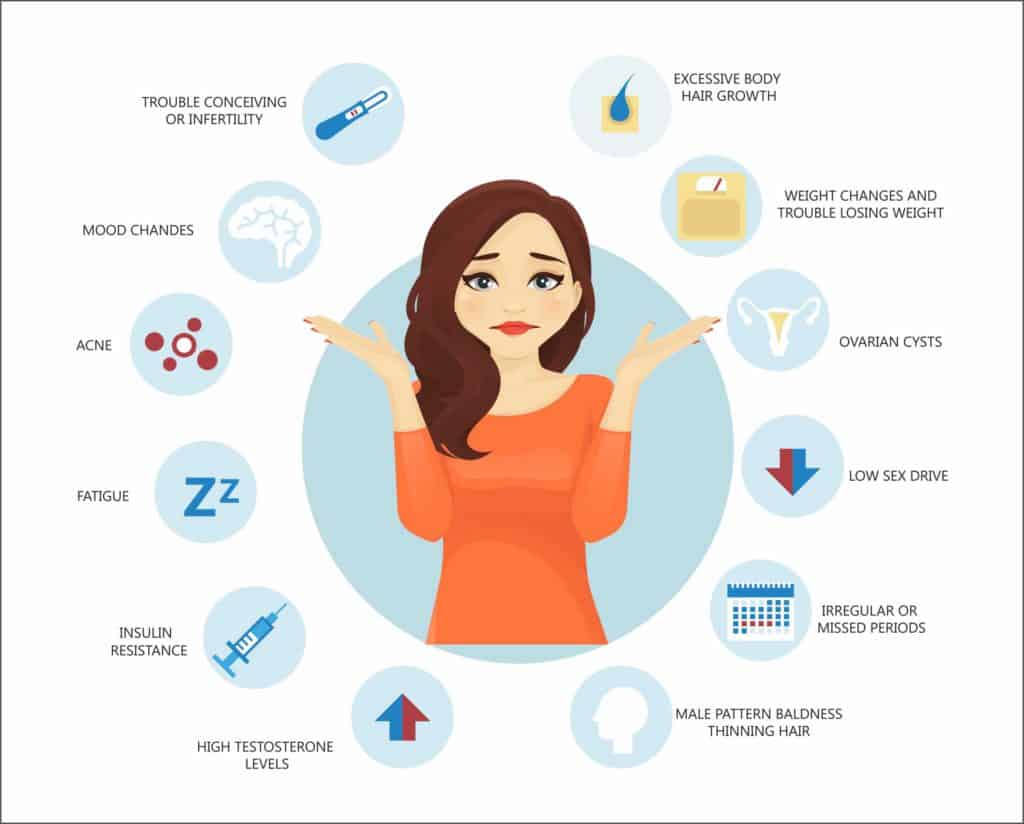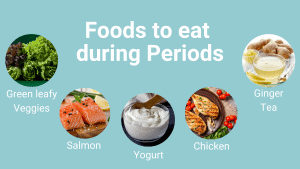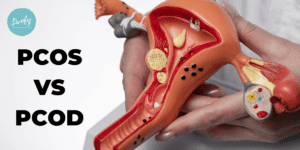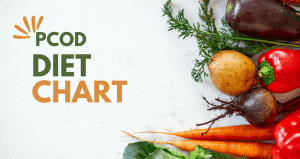First Signs Of PCOS? This article focuses on the symptoms and causes of PCOS and the complications that may happen
Polycystic ovary syndrome (PCOS) is a hormonal imbalance that occurs during the reproductive years. With PCOS, many small sacs of the fluid form along the ovary’s outer edge. These are known as cysts. Immature eggs are contained in the small fluid-filled cysts. These are known as follicles. The follicles stop producing eggs on a regular basis. PCOS’s exact cause is unknown. Early detection and treatment, as well as weight loss, may reduce the risk of long-term complications like type 2 diabetes and heart disease.
Symptoms
PCOS symptoms frequently appear around the time of the first menstrual period. After you’ve been having periods for a while, symptoms may appear.
- Periods that are irregular- PCOS is commonly characterized by irregular or infrequent menstrual cycles. Periods that last several days or longer than usual are also unusual. For instance, you may have fewer than nine periods per year. And those periods can happen up to 35 days apart. You might have difficulty getting pregnant.
- There is too much androgen- Excessive facial and body hair may result from high levels of the hormone androgen. It is called hirsutism. Severe acne and male-pattern baldness can also occur.
- Ovaries with polycystic cysts- Your ovaries could be larger. Many follicles containing immature eggs may form around the ovary’s edge. The ovaries may not function properly.
Causes of PCOS
-
Insulin sensitivity
Insulin is a hormone produced by the pancreas. It enables cells to use sugar, your body’s primary source of energy. Blood sugar levels can rise if cells become resistant to the action of insulin. This can cause your body to produce more insulin in an attempt to lower your blood sugar level.
Too much insulin may cause your body to produce an excess of the male hormone androgen. You may experience difficulties with ovulation, the process by which eggs are released from the ovary. Dark, velvety patches of skin on the lower part of the neck, armpits, groin, or under the breasts are one sign of insulin resistance. Other symptoms include an increase in appetite and weight gain.
-
Low-level inflammation
In response to infection or injury, white blood cells produce substances. It is called low-grade inflammation. According to research, people with PCOS have a type of chronic, low-grade inflammation that causes polycystic ovaries to produce androgens. This can result in heart and blood vessel issues.
-
Heredity
According to research, certain genes may be linked to PCOS. A family history of PCOS may play a role in the development of the condition.
-
Androgen excess
The ovaries can produce a lot of androgens when you have PCOS. Ovulation is hampered by an excess of androgen. This means that eggs aren’t produced on a regular basis and aren’t released from the follicles where they grow. Excess androgen can also cause hirsutism and acne.
Complications of PCOS
- Infertility
- Pregnancy-induced hypertension or gestational diabetes
- Premature birth or miscarriage
- A metabolic syndrome is a group of conditions that include high blood pressure, high blood sugar, and unhealthy cholesterol or triglyceride levels, all of which increase your risk of heart and blood vessel disease (cardiovascular).
- Diabetes type 2 or prediabetes
- Obstructive sleep apnea
- Anxiety, depression, and eating disorders
- The uterine lining cancer (endometrial cancer)
Treatment
There is no cure for PCOS, but there are several treatments and management options.
-
Diet and Exercise
A doctor will recommend lifestyle changes if a girl is overweight or obese. Weight loss can help with many of the health issues associated with PCOS, such as high blood pressure and diabetes.
Your doctor or a registered dietitian can create a weight-loss program for you based on your food intake, exercise, and activity levels. Exercise is critical for improving insulin sensitivity and preventing diabetes progression.
-
Medicines
Sometimes a doctor prescribes medication in order to help with PCOS. A doctor may first prescribe birth control pills to a girl in order to help control androgen levels in her body and regulate her menstrual cycle. Birth control pills may help some girls control acne and excessive hair growth, but they do not work for everyone. It may take up to 6 months to determine whether birth control treatment is effective.
Antiandrogens are used to treat PCOS. These medications counteract the effects of excess androgens on a girl’s body and can aid in the resolution of skin and hair growth issues.
Metformin, a diabetes medication, can lower insulin levels. It can help control ovulation and androgen levels in some PCOS girls. This can disrupt a woman’s menstrual cycle.









